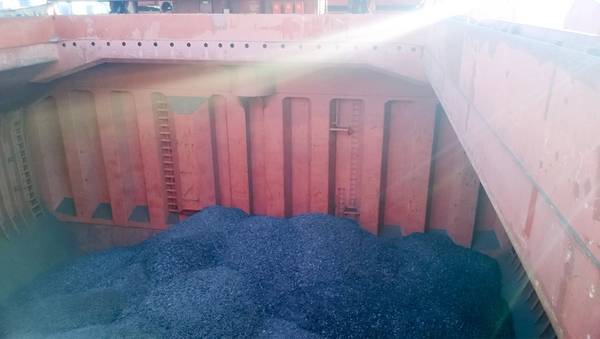
The Baltic Exchange's main sea freight index continued to fall on Friday, having broken a 10-day winning streak on Thursday, as rates throughout vessel segments eased.
The Baltic index, which tracks rates for ships ferrying dry bulk commodities, fell 37 points, or 1.5%, to 2,462 points. The index on Wednesday hit its highest since Nov. 2010 at 2,518 points. It has nearly doubled this year.
The capesize index dropped 87 points, or 1.7%, to 4,949 points, but marked its fourth consecutive weekly gain. Average daily earnings for capesizes, which typically transport 170,000-180,000 tonne cargoes such as iron ore and coal, fell $723 to $36,921.
The panamax index fell 18 points, or 0.8%, to 2,216 points, registering its first weekly fall in five weeks. Average daily earnings for panamaxes, which usually carry coal or grain cargoes of about 60,000 tonnes to 70,000 tonnes, fell $143 to $17,755.
The supramax index inched down 10 points to 1,338.
Reporting by Anjishnu Mondal



